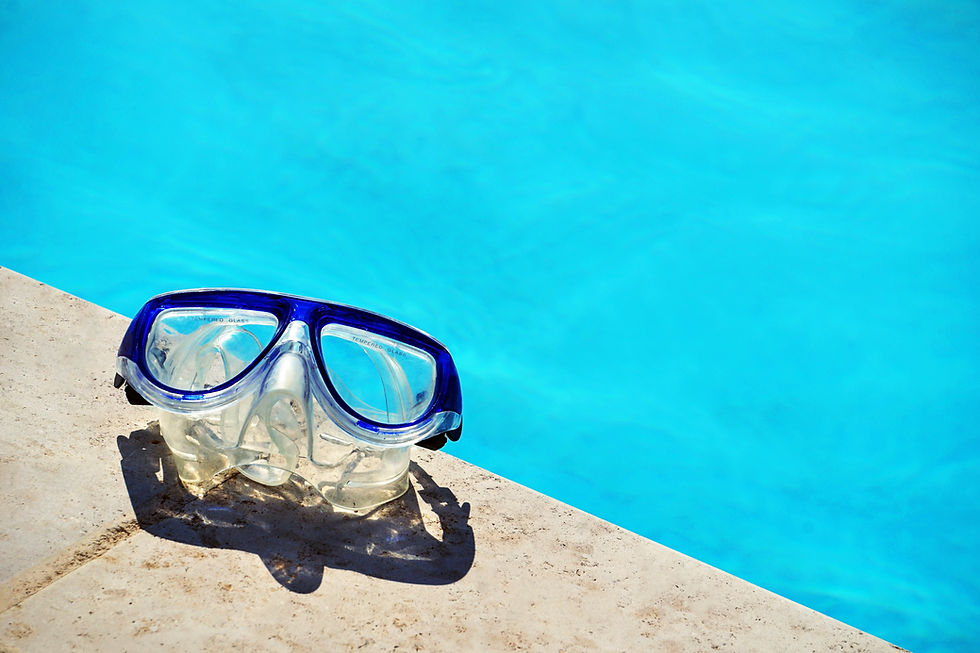From the Mediterranean Sea to Office: The Transformative Skills Gained Through Diving
- Sep 21, 2025
- 4 min read

Summer began not with sunshine, but with a shadow. Despite the exciting opportunities that awaited in September, I felt weighed down by various struggles. Happiness seemed out of reach, and I couldn't remember ever feeling so defeated.
I allowed myself to experience every emotion. When my tears had dried and I looked into the mirror at my puffy eyes, I made a resolution: after completing my vision board this year, I would pursue an additional dream.
That was the moment I made a decision: I would go diving and become a PADI-certified diver.
Since making that decision, I haven’t looked back. I’ve discovered my strength in transforming negatives into positives and emerging stronger on the other side. I’m grateful for the CrossFit training that equipped me to carry the diving equipment and regain my "power." As we know, happiness and confidence are the most beautiful traits one can possess.
The Controlled Breathing
The most valuable skill I have acquired is the ability to control my breathing. At first, being underwater in unfamiliar waters can be nerve-wracking. However, after a few dives, I began to get the hang of it.
Why is this important for me (and for you)? Deep breathing reduces stress and anxiety. It also helps stabilize blood pressure. While diving, I was able to lower my heart rate and improve oxygen delivery to my organs. Whether underwater or on the surface, controlled breathing calms the nervous system.
In addition to mastering breathing techniques, it is essential to equalize your ears while descending using maneuvers such as Valsalva, Frenzel, or Toynbee. Water pressure increases with depth, exerting pressure on your eardrums and sinuses. One time, I descended too quickly and experienced excruciating pain, which caused me to panic. I communicated with my instructors using hand signals to indicate that something was wrong, then I ascended gradually. By focusing on my deep breathing, I managed to calm my nervous system, allowing me to remain fully aware of my situation.
This experience serves as a powerful reminder that if I can maintain my composure under pressure at 60 feet underwater, I can certainly handle any challenges at work.
The Non-Verbal Communication
I hope every diving center is as strict as mine in Spain, where we are not allowed to dive without first learning essential hand signals. This could be a matter of life and death.
Having clear and effective communication underwater is crucial. I have experienced situations where my air was escaping, and I had difficulty breathing. In those moments, I quickly signaled to my instructor that I needed his alternative air source (octopus). Divers always carry two regulators: one is black, and the other is yellow. The yellow one is used for emergencies.
I have learned to communicate using my eyes while underwater, which has helped me develop the ability to pay attention fully and interpret body language. I am now applying this skill in my workplace by focusing more on my colleagues and striving to communicate clearly and comprehensively.
The Team Work
Diving is also a team sport. While professional dive masters, rescue divers, and instructors can dive alone, the majority of divers are recreational.
Every dive begins with a team briefing, which becomes increasingly important as the complexity and difficulty of the dives increase. During the briefing, the head instructor assigns roles and responsibilities to each instructor, ensuring they are accountable for the divers in their care. It’s vital that everyone understands the schedule and tasks, and the instructors check in on our mental states and emotions.
We create a safe environment both on the boat and underwater, setting aside our egos and being honest with one another.
I always strive to create a safe environment for my team meetings, where everyone feels comfortable sharing both positive and negative feedback. Team dynamics and project delivery improve significantly when roles and responsibilities are well-defined, allowing us to collaborate harmoniously.
In scuba diving, there's a principle known as the Rule of Thirds, which advises reserving the final third of your air supply for emergencies. This ensures you have a safety buffer for unexpected situations, such as assisting a buddy, navigating strong currents, or addressing equipment issues.
I apply this same principle to my project management by consistently including a buffer of time or budget in our deliverables to account for potential challenges.
Always Be Prepared
I have been sailing for most of my life, and we never set sail without thoroughly checking the boat's equipment, its main functions, and its overall condition. When it comes to scuba diving, the preparation process is even more extensive, even if you own your own equipment. Scuba regulators, BCDs (Buoyancy Control Devices), and dive wear are not just accessories; they are essential components of a life-support system designed to keep us comfortable, safe, and confident while exploring the underwater world. Therefore, it is crucial to ensure that this equipment is well-maintained. This means inspection and maintenance of the diving tanks, the valves, regulators, BCDs, wetsuits, fins, booties, mask, dive weight, diving computer, and the list never ends.
The success of any business meeting is often determined before it even begins. If participants do not take the time to prepare adequately, the chances of having a successful meeting are slim. Even if the meeting goes well, it is likely to be suboptimal. Therefore, effective preparation should be prioritized. Many leaders cite a lack of time as a reason for failing to prepare, a pitfall I have encountered numerous times. However, when it comes to making decisions, being prepared and doing your homework before an important meeting is essential.
I had the opportunity to complete both the PADI Open Water and Advanced Diver training. I highly recommend diving at Tabarca Island, which is located near Alicante and Valencia in Spain. I was truly amazed by the underwater flora and fauna, and it deepened my respect for nature. Let's work together to respect and protect our fragile environment! Remember, diving rule number one: do not touch living plants or animals, and do not bring anything back to the surface!
Extra tip: get out of your comfort zone! All progress takes place outside of it.















Comments